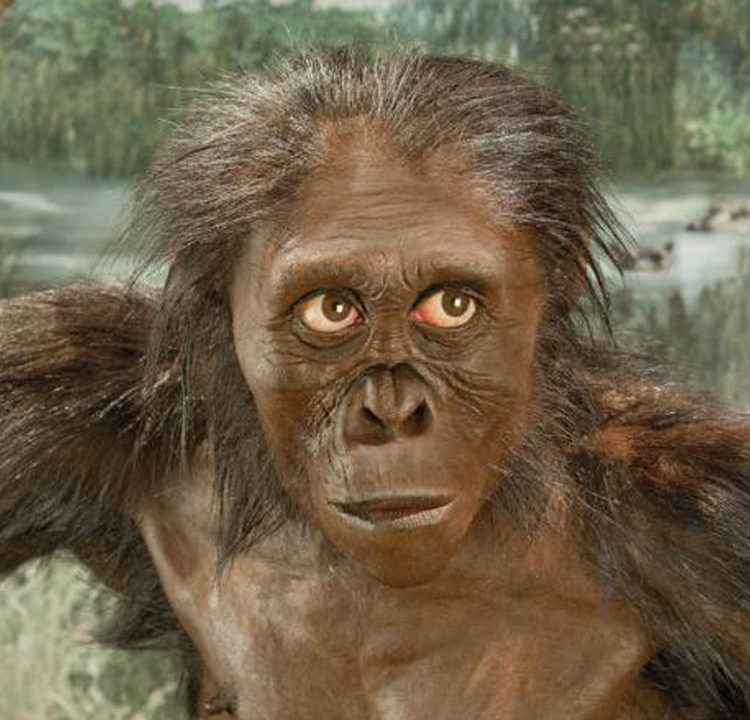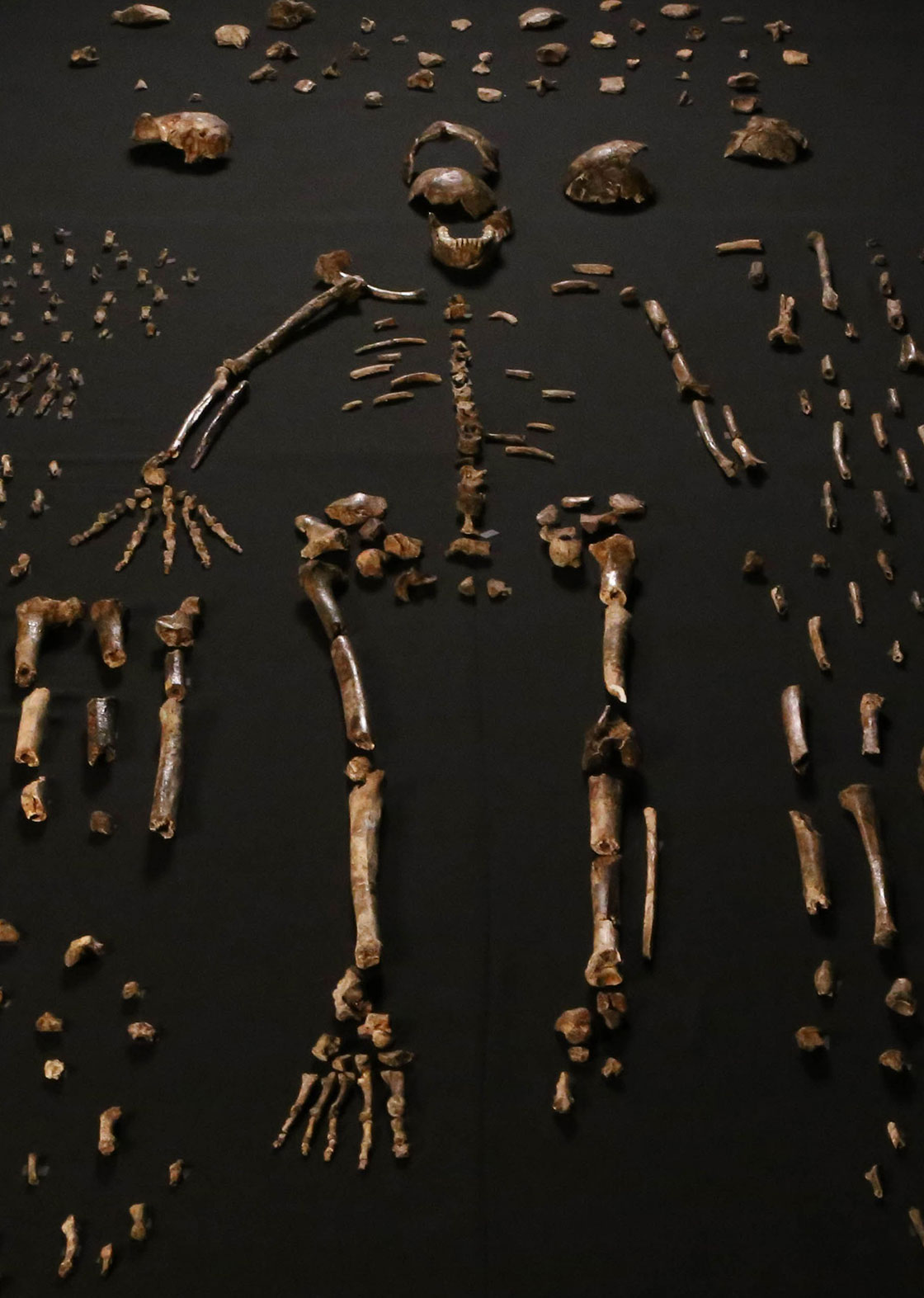Ian Tattersall is a paleo-anthropologist, author and curator of the American Museum of Natural History. In his book, “Monkey in the Mirror,” Tattersall defines “symbolic cognitive processes” as the defining element of our humanness.
He elucidates symbolic processes as “our ability to abstract elements of our experience and represent them with discrete mental symbols.” That means consciously separating out ‘things,’ generating names and images for them, and manipulating them, both mentally and physically. Nearly everything we do, and consciousness as we know it, is based on this basic ability.
Tattersall’s hypothesis is that the modern human brain existed in its present form for perhaps hundreds of thousands of years before some environmental stimulus ignited an explosive awakening of latent abilities.
At that point humans made the transition from essentially intuitive functioning to conscious symbolic functioning.
In this view, the Neanderthals were a tremendously successful but distinct human species, which had achieved the zenith of a lifestyle based on intuitive processes alone.
 But then along came the Cro Magnons, having developed and migrated from Africa, as had all previous hominid species. They were our species (“Homo sapiens sapiens”— a double misnomer, since it literally means ‘wise, wise man’), which displaced and drove the Neanderthals to extinction.
But then along came the Cro Magnons, having developed and migrated from Africa, as had all previous hominid species. They were our species (“Homo sapiens sapiens”— a double misnomer, since it literally means ‘wise, wise man’), which displaced and drove the Neanderthals to extinction.
Before 100,000 ago, there is very little evidence of what Tattersall calls “symbolic cognitive functions.” However after 40,000 years ago in Europe (and well before in Africa, though there is less evidence there so far), there is abundant evidence that “an entirely new order of being had materialized on the scene.”
In cave art, in tool making, in sculpture, engraving, music, elaborate burial of the dead, and much else, human culture and consciousness, as we know them, had suddenly emerged.
Tattersall deals with two shibboleths that have become common intellectual currency: the idea that evolution works through gradual progression toward a perfected form; and the idea that ready-made adaptations emerge strictly through natural selection, making creatures more fit to compete.
In actuality, most if not all innovations in nature arise through a process called “exaptation,” through which “a characteristic arises in one context before being exploited in another.” The classic example is bird feathers, which were used for insulation by dinosaurs millions of years before they were used for flight.
In the same way, Tattersall argues, the modern human brain evolved for some other adaptation, but was later “exapted” for the uniquely powerful symbolic and cultural purposes we know.
In short, the human brain evolved in a goal-less, non-linear way, and only much later was “exapted” for symbolic thought. That exaptation enabled us to have language, culture and science.
But the evolution of conscious thought, which is inherently separative, carried with it an inexorable tendency toward fragmentation. Since nature unfolds in a totality of order, with every plant and animal species inextricably part of a larger whole, this poses a tremendous philosophical, indeed existential question: How could evolution produce an exaptation and adaptation in Homo sapiens so at odds with the rest of nature?
Tattersall ends his book with a rhetorical and rather resigned question: “Who knows what exaptations are already in there waiting to be released?” But his prescription, to “actively seek ways to maintain the status quo, and develop means to cope with our familiar yet at the same time bizarrely unfathomable selves,” just doesn’t cut it.
Given the pressure of humankind’s headlong rush toward fragmenting nature, culture and the human psyche into countless bits and bytes, is the human brain being exapted for awakening insight in the same way that it was exapted for symbolic thinking?
The word evolution has come to connote gradual change toward greater perfection. But those who study organisms in nature agree that evolution is not evolutionary but revolutionary. That is, long periods of stability and even stasis are “punctuated” by short bursts of major change.
Just such a radical change occurred when the modern human brain suddenly became rewired for “symbolic cognitive processes.” But this gift carried with it the as yet unrealized imperative of self-knowing and self-understanding, because without it, humans cannot stop dividing and fragmenting the earth and ourselves.
Therefore, just as the new human brain contained the potential for conscious thought, and conscious thought tends toward increasing fragmentation, so too self-made evolutionary pressure increases for another leap, involving insight sufficient to enable us to use thought and knowledge wisely, rather than stupidly, as humans are.
Is humankind standing at a new juncture, similar in import to what our distant, pre-human ancestors unconsciously faced before conscious thought and culture exploded onto the scene?
Apparently so. But it has nothing to do with AI and “the singularity,” except as that represents an unprecedented peril. Without some perverse melding with our thought machines, our deepening awareness in awareness in non-egocentric self-knowing is essential to taking the next step in our evolution.
Martin LeFevre
Lefevremartin77@gmail.com
